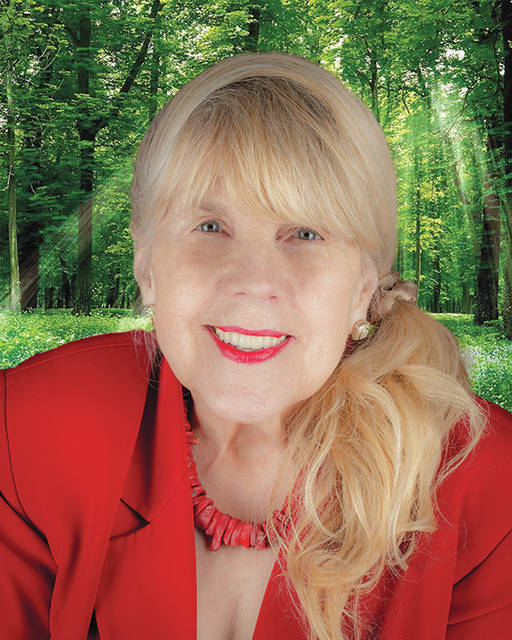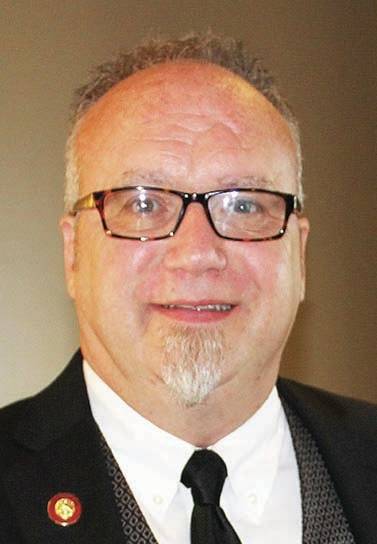Rape of a 16-year-old girl, or was it consensual?
Published 9:48 am Tuesday, March 3, 2020
|
Getting your Trinity Audio player ready...
|
Recently, some of my students at a college where I am currently teaching a class in communication were invited to participate in a college-wide essay competition addressing the topic of civility in discourse as part of the Black History Month celebration.
I was extremely proud of the essays my students wrote on a variety of subjects from dialogue between an angry parent and child to dialogue when a pub manager was banning a rowdy customer who was carrying a pistol, to dialogue between a health-center manager and a pregnant employee.
For some time I have believed that writing has the power to heal as we reflect on the obstacles- and at times horrific incidents- that we face as a part of being human.
March is Women’s History Month, and as women we face a host of issues such as discrimination in pay and promotions to outright sexual assault. That one of my students, Robin*, wrote about being raped at age 16 (she is 25 now) is important, because sexual harassment and sexual assault, including rape, is very familiar to American girls and women.
In the March 2020 issue of Vanity Fair, investigative journalist Rich McHugh reports on his interviews of 30 women who have accused Harvey Weinstein of sexual harassment, sexual assault and/or rape. McHugh says, “This story taught me that the problem is so much larger than exposing one man. Abuse is systemic in our culture.”
You might ask, “How large?” There is statistical data about rape on college campuses, in the military, and in the public-at-large, but the data is problematic. Why? Girls and women don’t report it out of shame, fear, the loss of status.
They have a variety of questions: Was it consensual? To whom do I report? Will I need to testify in a courtroom? Will I lose my job? What are my options if the rapist has given me a sexually-transmitted disease? What if I am pregnant as a result of the rape? Will I need therapy? A big question always looms: What if no one will believe me?
Robin chronicled her response in a thoughtful, helpful way. She and I are hopeful that some readers might understand that they are not alone.
The narrative. Robin had completed her sophomore year of high school and was raped that summer. She had known Shawn* since grade school and had always had a crush on him. He was popular and there was no shortage of girls interested in spending time with him, but he chose her.
Her excitement quickly turned to fear as she realized that his intentions were to go beyond kissing when he “took his pants off and went for mine.”
She protested, said, “Stop. I’m not ready for this. I don’t want to take it this far so quickly.”
His response was, “You’d be lucky to have sex with me. People will think better of you for having sex with me because of my status.”
Again, she said, “Stop.”
And he began to strike her and curse her, “You’re trying to ruin my good time.”
Robin closed her eyes and prayed that it would be over soon. He continued to insult her, and when he was finished, left her.
She reports, “I let his story shape my truth for years to follow, trying to convince myself that the sex had been consensual, hoping to forget the pain I had experienced.“
Following the rape, she was at gatherings with him, and “If he started a conversation, I would politely go along with it no matter how much I wanted to run and hide. After high school, I never had a conversation with him again.
“I learned later that Shawn had sexually assaulted his partner and had given her a black eye. I felt guilty about not having said anything, but most of all I felt SO angry.
“I was sexually assaulted two times in four years after that first rape and still blamed myself. I told myself it was because I got too drunk or that I had gone to my boss’s house for a party.”
“When the #MeToo movement started, I heard other survivors’ stories, and I realized that I was assaulted.”
She continues, “The stigma associated with victims of sexual assault encouraged me to convince myself that what I experienced was consensual. I had heard all that garbage that is whispered or said openly and repeated: ‘Women can’t be sexually assaulted by a partner. Women lead men on by flirting with them.’
“Further, I told myself that since I didn’t fight hard enough, and I didn’t scream, that it wasn’t rape. The last time I saw Shawn was five months ago and we locked eyes, but he walked right by me. I think society has failed him as well as me, because I’ve come to believe that he thinks he didn’t do anything wrong.”
She concludes her essay by writing, “I didn’t fully understand at the time that saying ‘No’ was enough. I didn’t realize that I shouldn’t have to beg and plead for my boundaries to be respected. Years later, I have been able to accept my own truth and forgive myself when I stopped blaming myself.”
If this happened to your sister, to you, or your daughter, what actions would you take, if any? I’m interested in your responses.
· Fictitious names to protect privacy






